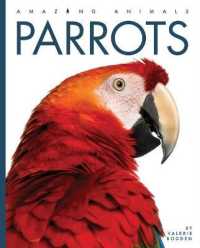- ホーム
- > 洋書
- > 英文書
- > Literary Criticism
Full Description
Exploring a topic at the intersection of science, philosophy and literature in the late eighteenth century Dahlia Porter traces the history of induction as a writerly practice - as a procedure for manipulating textual evidence by selective quotation - from its roots in Francis Bacon's experimental philosophy to its pervasiveness across Enlightenment moral philosophy, aesthetics, literary criticism, and literature itself. Porter brings this history to bear on an omnipresent feature of Romantic-era literature, its mixtures of verse and prose. Combining analyses of printed books and manuscripts with recent scholarship in the history of science, she elucidates the compositional practices and formal dilemmas of Erasmus Darwin, Robert Southey, Charlotte Smith, Maria Edgeworth, and Samuel Taylor Coleridge. In doing so she re-examines the relationship between Romantic literature and eighteenth-century empiricist science, philosophy, and forms of art and explores how Romantic writers engaged with the ideas of Enlightenment empiricism in their work.
Contents
Introduction: Romanticism's composite orders; 1. Knowledge, text, mind: a history of inductive method; Part I. Making Texts: The Annotated Poem: 2. Erasmus Darwin's prose of the world: induction and the philosophical poem; 3. Poetics of the commonplace: Robert Southey's analogical romance; The First Landing Place: Prose Notes and Embedded Verse; Part II. Making Minds: Poetry in Prose: 4. Methodizing the mind: experimental education and the poetic excerpt; 5. Coleridge and literary criticism: the pains of induction; Final Landing Place: The Composite Incarnate.








